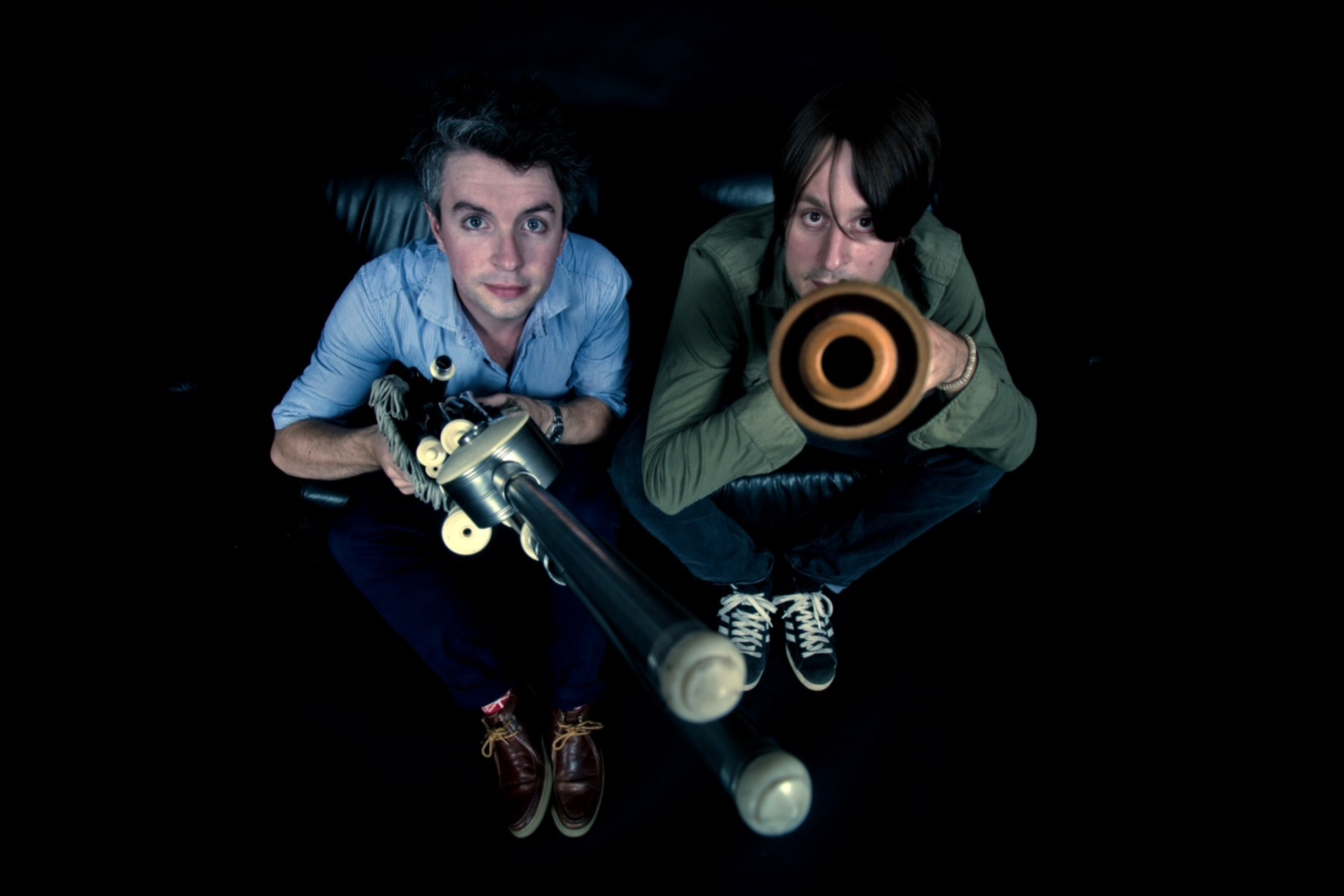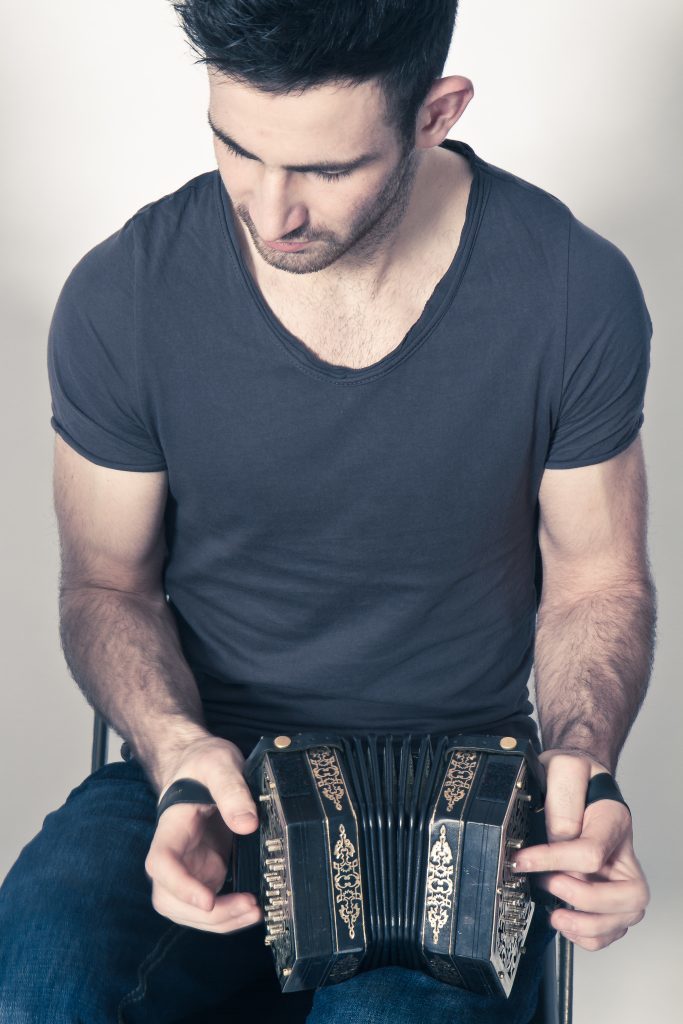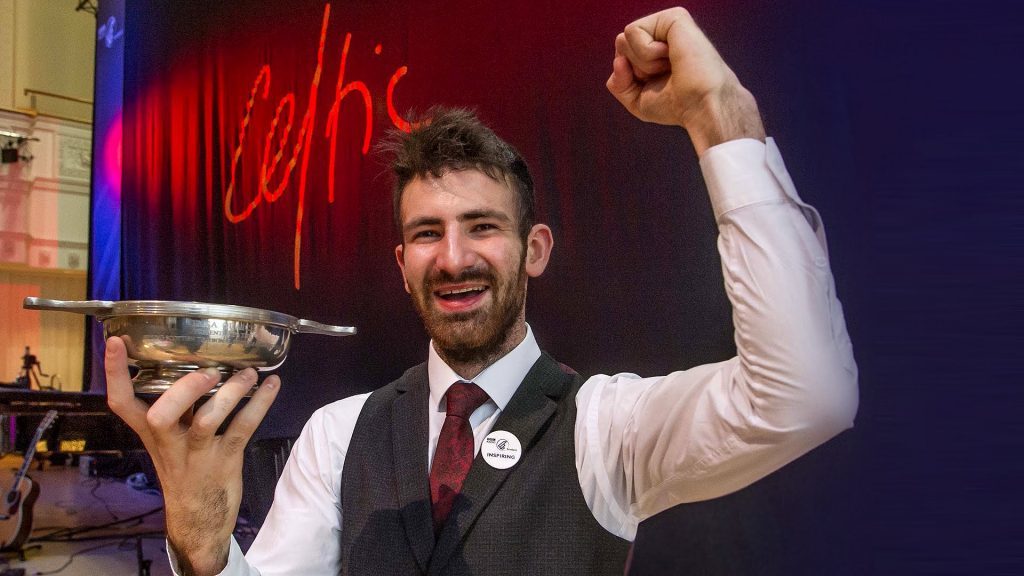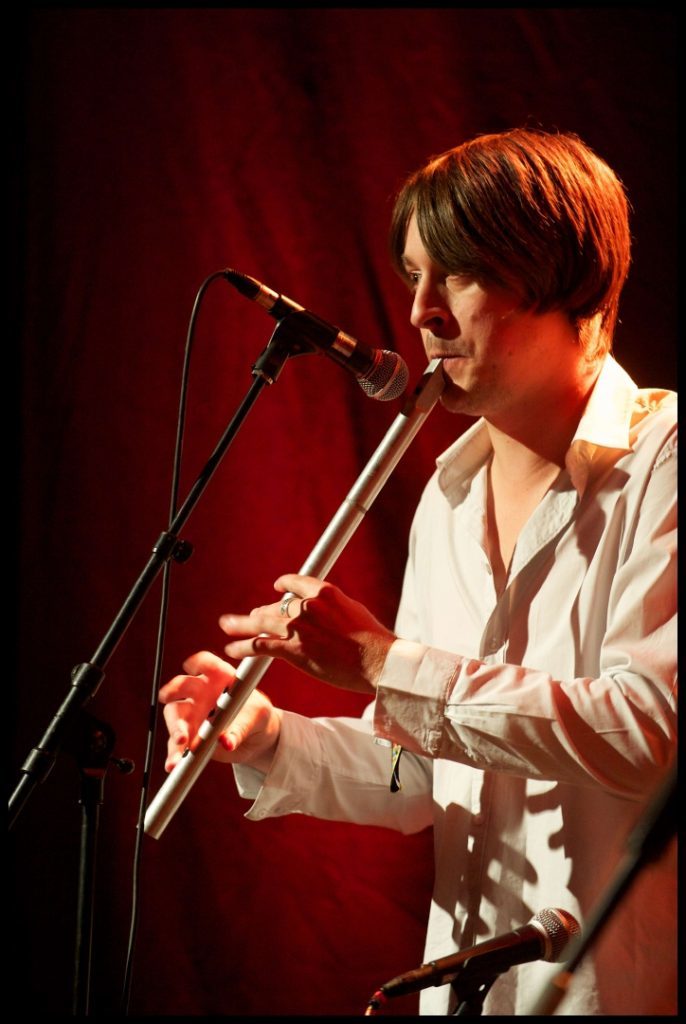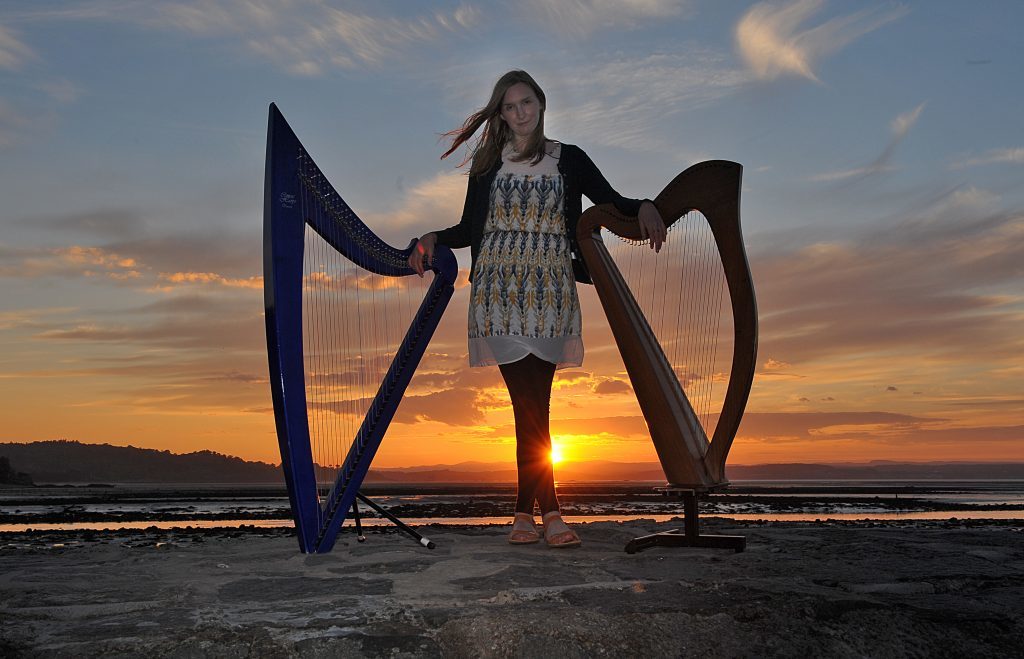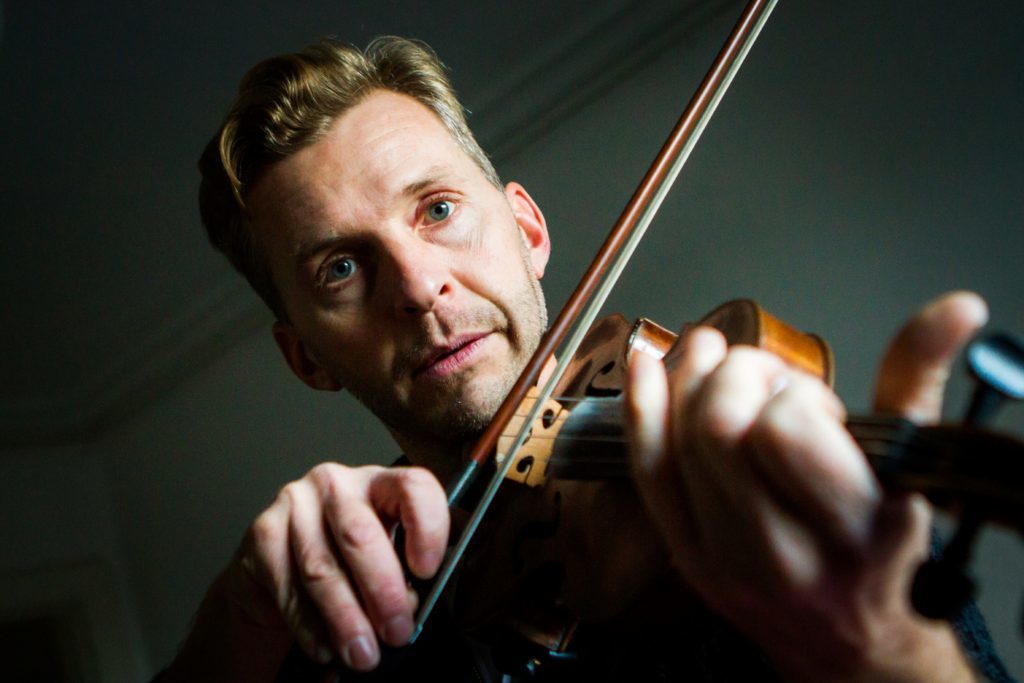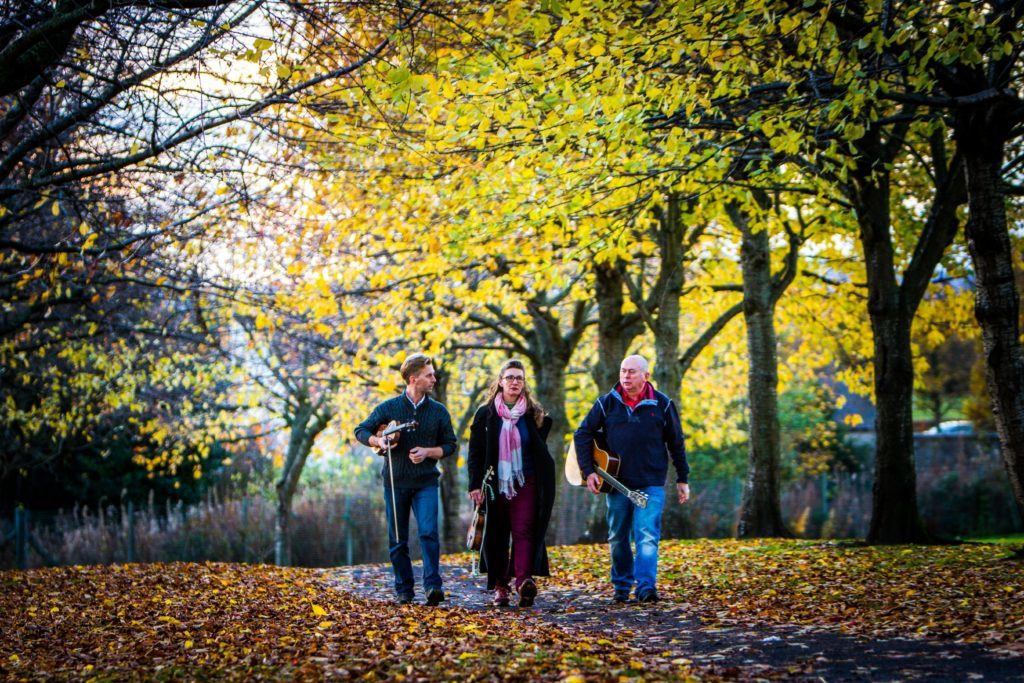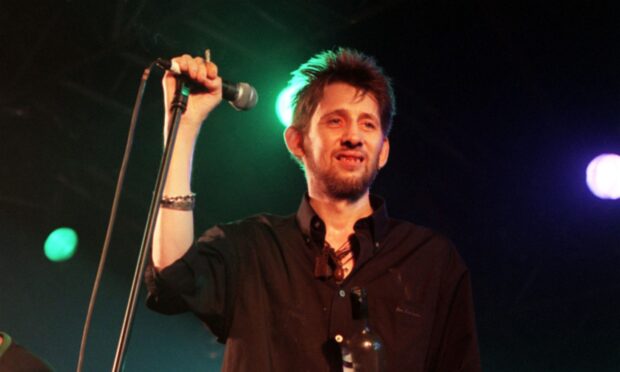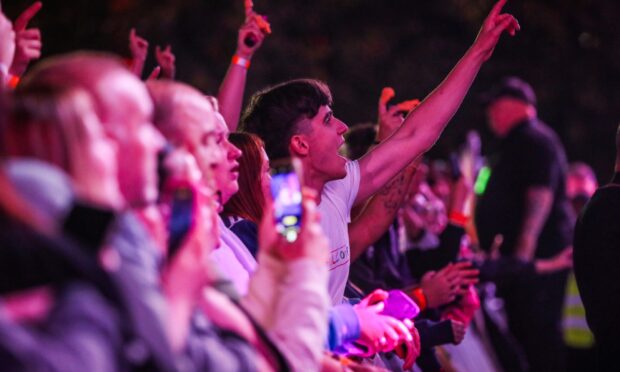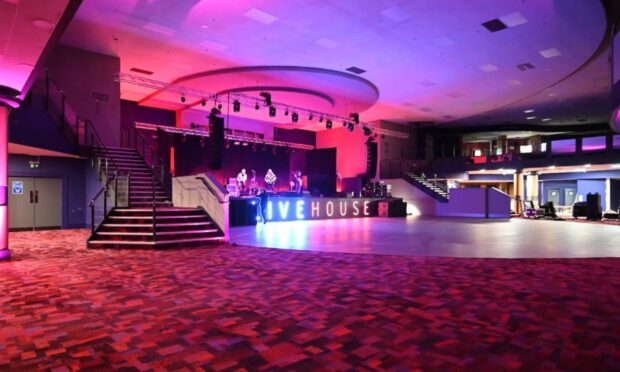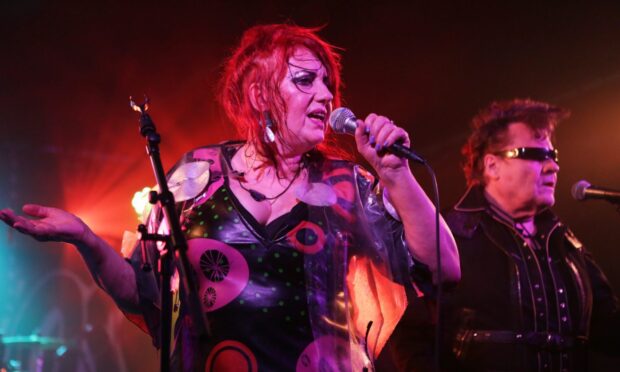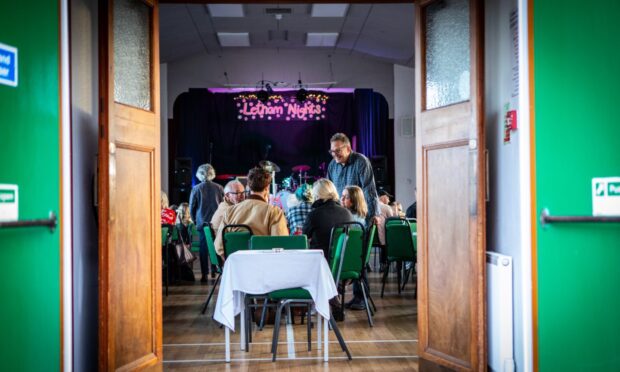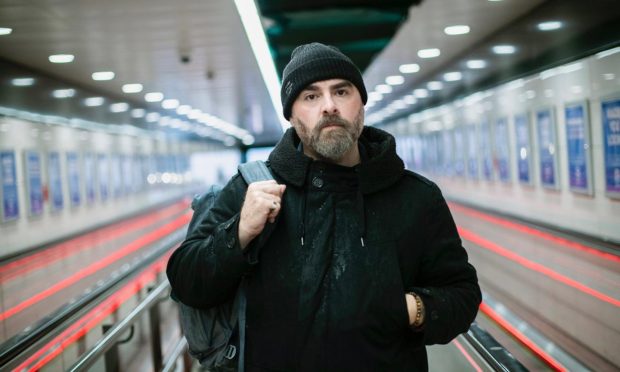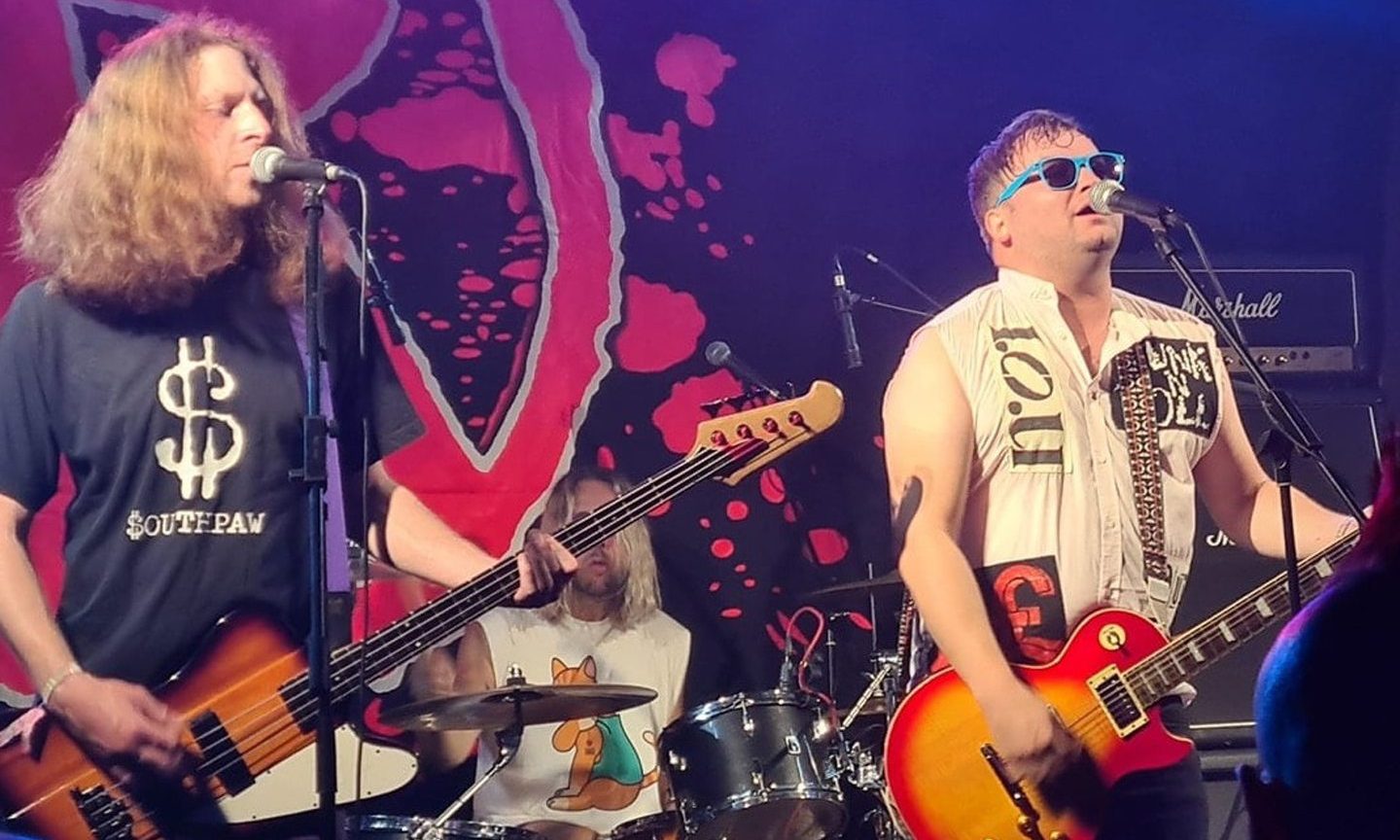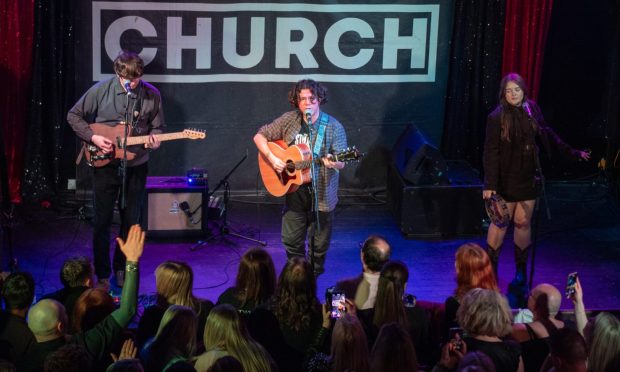As the Scots Trad Music Awards hit Dundee, Gayle Ritchie meets the players helping to shed the “heedrum-hodrum” image
Ruggedly handsome and oozing talent from every pore, Mohsen Amini is the epitome of cool.
He also happens to be a concertina player.
Crowned BBC Scotland’s 2016 Young Traditional Musician of the Year, Mohsen, 23, is helping to shake off the stereotype that the traditional (trad) folk music scene is the sole domain of bearded, tartan-wearing, whisky-guzzling pensioners.
Yes, there’ll be a fair few beards around town ass the 14th annual Scots Trad Music Awards unfold in Dundee tonight but they’re just as likely to be sported by on-trend hipsters as old school folkies.
“Lots of people imagine the trad and folk scene is just ceilidh culture, cheesy music and small folk clubs – maybe a bit heedrum-hodrum – but the truth is, the music can be really pumping, with crowds going wild at festivals and there’s a really youthful buzz about it,” says Mohsen.
“There’s a massive group of people who absolutely love it, and they’re all ages – from 10 to 100.
“It used to be the case that you’d have two folk on stage, but now there can be a whole bunch of musicians, with electronics and effects put into arrangements to make massive sounds.”
Mohsen, who was born and raised in Glasgow and whose mum is English and dad Iranian, perhaps isn’t your typical Scots musician.
“I’m half-Iranian, half-English and called Mohsen!” he laughs. “I guess that makes me a bit different.”
On the shortlist for the Instrumentalist of the Year prize, Mohsen – who travels the world playing with four folk bands – is flying the flag for the concertina, which he says is an incredible and overlooked instrument.
His own is 120 years old and cost him £7,000, although he says it’s on its last legs. So why concertina and not guitar or fiddle?
“My sister was into Irish dancing and I used to watch her compete,” he explains. “One time, when I was 10, one of the musicians let me have a shot of his concertina and I took to it like a duck to water. I loved how I could get it to make sounds that other instruments couldn’t.
“I practice eight hours a day and take my concertina everywhere. I sleep with it, I do everything with it. I’ll strap it round my leg if I’m somewhere I don’t trust!”
Over the years, Mohsen has been tutored by Mairi Campbell and Catriona McArdle – both hugely respected in the industry – but is largely self taught.
Like many of his peers, the world of trad is one he sought out for himself, rather than one he arrived at via formal education.
“I did study Higher music but I really learned through Comhaltas, which promotes traditional Irish music globally, and only costs £1 a session,” he explains.
“There’s also the Feis, which teaches music workshops in a fun and friendly environment.”
Mohsen was originally studying chemical engineering at Strathclyde University but left to do music professionally. For a while, he funded his music by gigging and working for a roofing company.
Was he not worried labouring would damage his precious digits?
“Yeah, there was a risk to my hands but it was great fun,” he laughs. “But I’m probably better off sticking to music.”
Talk of a trad revival is a little off the mark, he reckons.
“I don’t think trad has ever really gone away but you do have to go looking for it more than you would, say rock music,” he adds.
Mohsen’s band Talisk is on the shortlist for album of the year at the Scots Trad Music Awards with their record, Abyss.
Fellow band member, guitarist Craig Irving, says trad music is “very much NOT like the stereotype”.
“The majority of people involved professionally are under 50,” says Craig, 22.
“But it’s far easier to get into if you’re somewhere like Inverness or Ullapool where everyone is playing folk.
“It’s the norm there, whereas somewhere like Dundee, you either have to have roots in it or really need to know where to look.”
Ross Ainslie from Bridge of Earn in Perthshire is up for album of the year with SYMBIOSIS, written with his friend Ali Hutton.
Ross, 33, has been heralded as one of Scotland’s finest traditional musicians and composers, playing pipes, whistles and cittern and performing both solo and with Treacherous Orchestra, Salsa Celtica, Dougie MacLean, Charlie Mckerron, India Alba, and Jarlath Henderson.
He began playing chanter aged eight, studying under Gordon Duncan, and he and Ali were members of the Vale of Atholl pipe band.
“The music excited us but I was the only piper in school and we didn’t know anyone else in Perth who was into it,” says Ross.
“That changed when we went up to Ullapool and hung out at the Ceilidh Place and got involved in the Feis movement. We met people our age who were into folk and didn’t feel quite so alone. We started experimenting and playing about in different bands.”
Ross believes there’s been a sea change in trad music in the last decade, with more young people being drawn in.
“It started in the Highlands but it’s like there’s been a resurgence and it’s spreading across Scotland. Loads of young folk prefer the modern style of trad – it’s more fun, more social and you can mix it up. I’ve piped alongside fiddle players, jazz musicians and classical artists. It’s exciting when you bring in electronics and record with synthesizers and electric bass.”
it also helps that the Royal Conservatoire of Scotland (formerly the RSAMD) offers a degree in folk music and the National Piping Centre in Glasgow just launched an HNC in piping, which Ross teaches part-time.
Singer and harpist Rachel Newton, 31, from Edinburgh, is up for the Instrumentalist of the Year award tonight. She agrees the trad scene is on the up.
“There’s more awareness of the genre and some of the stereotypes no longer exist,” she says.
“Lots more young people are getting into it thanks to organisations like Feisean nan Gaidheal and the Youth Gathering in Edinburgh,” she says.
“They run classes and summer schools, making it fun and social as trad music should be.”
Folk musicians Barry Nisbet, Claire Borthwick and Ruth Alexander set up Dundee Acoustic Music Club in 2015.
Based in the city’s west end, it showcases the best of live folk and roots music from the UK and beyond and it’s been shortlisted for tonight’s Club of the Year award.
Guitarist Barry, 39, says there’s a real buzz about the scene.
“Tastes are diversifying and people are being drawn to it,” he says.
“The image has changed and there are a lot of exciting trad bands like Dallahan and Shooglenifty. Players are young, energetic and use lots of imagination.”
Originally from Shetland, Barry – who plays with multiple bands, including Wire and Wool – says Dundee’s burgeoning music scene encouraged him to put down roots here.
Meanwhile, across the water in Fife, Kirkcaldy Acoustic Club has been backing up-and-coming folk acts since the club was set up 11 years ago.
“It’s hard for young bands to get a break so we’ve always supported their early gigs,” says co-founder Fiona Forbes.
“A very inexperienced Rachel Sermanni played here when she was 18 and we’ve had acts from across the world.”
However, Fiona says regardless of the quality of the act, sessions aren’t guaranteed to be busy.
“Some people are still a bit dubious about how acceptable folk music is, and maybe that’s because we’re in Kirkcaldy and not Glasgow or Edinburgh,” she muses.
“We don’t do it for the money – we do it for the love of the music – and hopefully with events like the Trad Awards being televised, more people will open their minds to it.”
This will be the second year the Scots Trad Music Awards – known as the Oscars of Scottish folk music – has taken place in Dundee.
Event founder Simon Thoumire, who launched the annual celebration in 2003, says the awards are great for “minority music”.
“Trad is competing with pop and rock but thanks to social media, word is getting out and more people are getting into it,” he says.
“Music in schools is a hot topic but there’s more opportunity to get into trad outside the standard education system, at things like Feis Rois folk music workshops and projects like Abercraig (20-strong group of young musicians from Tayside).
“Perceptions are changing and more people are starting to realise that folk music can just as easily hail from a group of 20-year-olds as it can a bunch group of bearded old men.”
Glenfarg-based Bob Buchan handles PR for trad bands across the country, many of which have been nominated for tonight’s awards.
“Trad music is very broad church,” he says. “The traditional ‘standard bearers’ of the past always will be held in high regard but the younger musicians, singers and writers are really pushing the boundaries and taking the music forward.
“Young people have realised rock is not the only genre to find exciting guitar riffs and exciting musicianship. It’s all there in traditional music.”
info
The 14th annual MG ALBA Scots Trad Music Awards returns to Dundee’s Caird Hall tonight at 7pm.
Known as the Folk Oscars, the event is broadcast live on BBC ALBA, featuring leading Scottish musicians and singers, including The Scott Wood Band, Fat Suit, Wilma Kennedy, The Halton Quartet, Mohsen Amini and Tayside youth band Abercraig.
First started in 2003, the awards generate more than 100,000 public votes across 18 categories including: Album of The Year, Live Act of the Year, Gaelic Singer of the Year, and Instrumentalist of the Year.
Visit projects.handsupfortrad.scot for more information.
